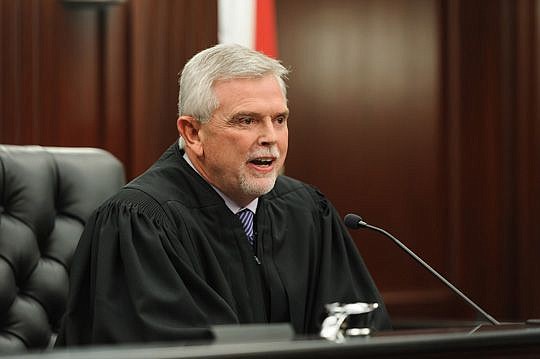
When the U.S. Supreme Court ruled in January 2016 that Florida’s death penalty sentencing protocol should be amended, court officials predicted there could be an avalanche of post-conviction motions from inmates on death row.
They were right.
That’s why a bill will be introduced Tuesday to City Council to appropriate $450,000 to assist the courts in disposing of 3,850 cases seeking post-conviction relief.
The money will be used to hire attorneys to review the motions. The funds come from from the $65 court cost fee paid by people who plead guilty or nolo contendre to, are found guilty of or adjudicated delinquent for any misdemeanor, felony or delinquent act or criminal traffic offense.
The fee established by the Florida Legislature in 2004 may be collected by each county.
“It’s a user fee — on the criminal side,” said 4th Judicial Circuit Chief Judge Mark Mahon.
Use of funds derived from the fee is equally earmarked for four categories:
• To provide legal aid services and programs
• Personnel and legal materials for the public as part of a law library
• Fund teen court and other juvenile alternative justice programs
• Use at the chief judge’s discretion for innovations, to supplement state funding for elements of the court system or for local requirements.
In April, council approved transfer of nearly $87,000 from the fund to hire staff attorneys to review a backlog of about 1,200 post-conviction motions.
Court Administrator Joe Stelma said after the Supreme Court ruling, post-conviction motions started being filed at a faster pace. The court still receives at least 10 new motions each day, he said, nearly a year after the Supreme Court decision.
“We’re back at it,” said Mahon. “We desperately need to make progress.”
Many of the motions must be reviewed within 30 days, which makes it impossible for the circuit’s staff attorneys to keep up with the influx. That makes additional non-staff attorneys “the ideal solution to a difficult problem,” Mahon said.
In addition to the April appropriation, funds were transferred from the account in 2008 ($20,000 for part-time hours for court employees) and in 2009 ($63,000 to pay retired judges to hear cases based on an overloaded court docket).
Stelma said there’s about $700,000 in the fund that’s available for innovations or to cover local court expenses.
Ordinance 2017-4 will be reviewed by the Finance and Public Health & Safety committees before being sent to the council as a whole for a vote, possibly as soon as Feb. 14.
(904) 356-2466